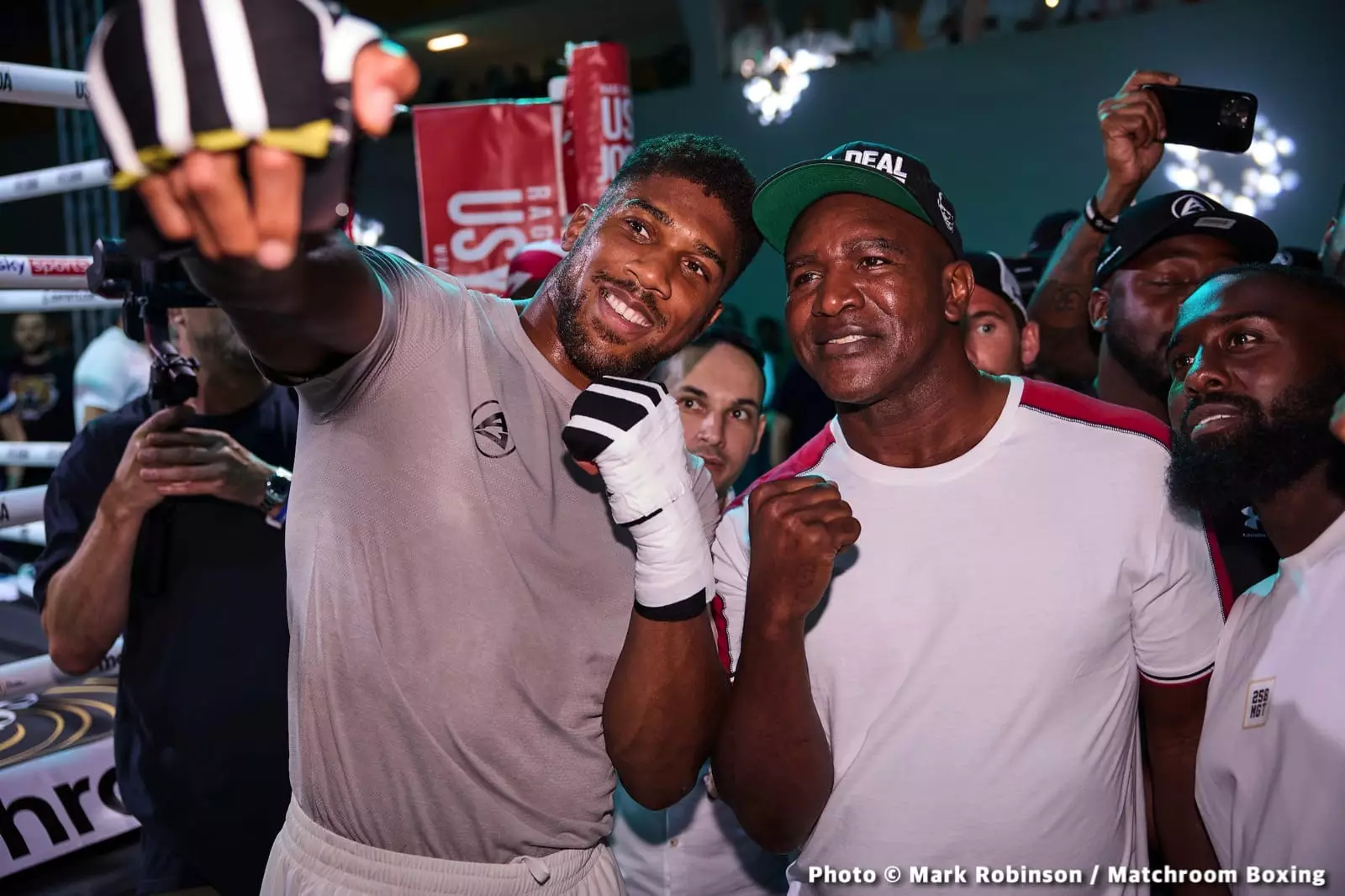At the recent Ring Magazine Awards ceremony in London, Evander Holyfield, the acclaimed former undisputed cruiserweight and heavyweight champion, took center stage in a rare and candid interview with Radio Rahim of Seconds Out. Holyfield’s remarks resonated with both nostalgia and a fierce sense of competitiveness, as he passionately defended his status as the only four-time heavyweight champion. His assertions, however, reignited the age-old debate surrounding who truly deserves the title of the greatest heavyweight boxer in history—the illustrious Muhammad Ali or a more recent contender in Holyfield himself.
Holyfield made it abundantly clear that he believed his achievements had been unjustly overshadowed by those of Muhammad Ali. He emphasized that he remains the only fighter to claim the heavyweight title on four separate occasions, a record he has held for over two decades. The former champion expressed frustration at what he perceives as a historical oversight: “I’m the only four-time heavyweight champion of the world but they’re still talking about Ali when I broke his record,” Holyfield said. His combative tone was a stark reminder of how fiercely competitive he remains, even years after hanging up his gloves.
However, while there is palpable merit to Holyfield’s argument—his resilience in facing larger opponents and his accomplishments in the ring are undoubtedly impressive—it raises significant questions about the criteria used to establish a fighter’s greatness. Can records alone determine the best in a sport that is profoundly influenced by context, eras, and competition?
It’s essential to consider that being a champion is not solely about accumulating titles but also involves the caliber of opponents faced. Holyfield’s resume includes notable victories over icons such as Buster Douglas and George Foreman, which adds weight to his legacy. Yet, when assessing greatness, one cannot overlook Ali’s unparalleled resume, which includes victories against formidable opponents like Sonny Liston, Joe Frazier, and George Foreman during a time when there was typically only one heavyweight champion recognized by the sport.
Moreover, the evolution of boxing during Holyfield’s active years complicates this debate further. With multiple organizations like the WBC, WBA, IBF, and later the WBO recognizing champions, the landscape of heavyweight boxing became more fragmented compared to Ali’s era, where having one recognized champion made it easier to establish uncontested dominance.
The discourse surrounding boxing greatness ultimately reveals the subjective nature of the argument. If accolades and titles were the only measure, it would render the achievements of legends like Floyd Mayweather and Canelo Alvarez as the pinnacle of boxing due to their record of titles across weight classes. Yet, the narrative surrounding boxing champions is deeply entwined with their stories, the eras in which they fought, and the opposition they faced.
In his interview, Holyfield’s fervor for recognition is palpable, and rightly so. His storied career deserves respect and acknowledgment for not only his records but also his incredible comebacks and perseverance. However, elevating his status above Ali relies heavily on a narrative that may not hold universally across boxing fans, purists, and analysts alike.
In the end, while Evander Holyfield has every right to champion his legacy, the discussion of greatness in boxing is multidimensional. It’s about contributions to the sport, the battles fought, and the legacies left behind. Ali transcended boxing, becoming a cultural icon and a symbol of courage and resilience during a turbulent period in history. Holyfield’s story is one of extraordinary achievement and determination. Rather than pitting them against each other in a quest for supremacy, perhaps the best approach is to celebrate both legends for their unique contributions to the sport and their everlasting impact on boxing. Each champion made history in their own right, and their legacies will continue to inspire future generations of fighters aiming for greatness in the ring.

